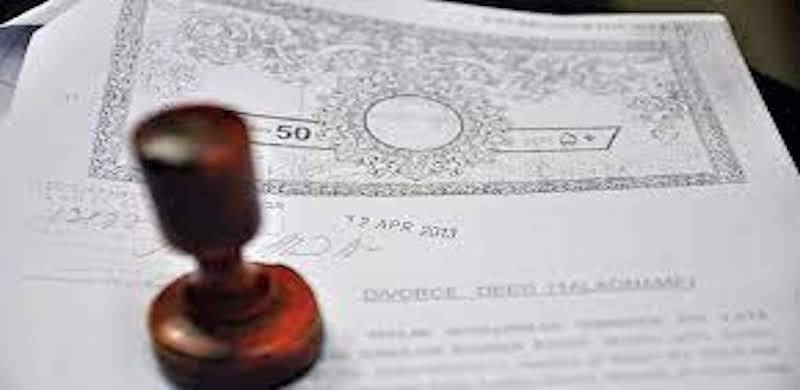
The process of getting a divorce (talaq) has been discussed in The Muslim Family Law Ordinance 1961, which needs to be understood.
The word talaq has been described in Section 7 of the Ordinance. It says that a husband can pronounce talaq to his wife in the presence of two witnesses orally or by writing it on stamp paper of Rs.100/. Divorce can also be given in the form of a notice served to the Union Council and its copy shall be provided to the wife. A talaq shall not be effective until the expiration of 90 days from the date of pronouncement of talaq which is delivered to the UC. If the wife is pregnant at the time of pronouncement of a talaq, it shall not be effective until the pregnancy ends. There is a one month process after notifying the union council, during which the council tries to hold a reconciliation between the couple. If the couple fails to reach a compromise during this period, then the divorce will take place and the council will issue a certificate to this effect.
There are three main points of effectiveness of talaq.
If the aforementioned conditions are not satisfied, talaq would not become effective even after 90 days. If the wife herself admits that she had been divorced by the husband, the date of effectiveness of the divorce would be on the basis of the admission of the wife.
Divorce usually causes depression, anxiety, or mental illness in one or both spouses, and can make balancing career and child raising difficult. These issues might make it difficult for parents to provide stability and affection to their children when they need them the most.
Marriage under Muslim law is a civil contract not a sacrament. It is ordained by God in the Holy Quran and it is for comfort, love and compassion. Short temperament, lack of patience, lack of trust, joint family system, forced marriages, difference in social standing, extramarital affairs, and the husband's second marriage are some of the primary causes for divorce in the Pakistani society.
As per reports, divorce rate is increasing steadily in Pakistan. In the first quarter of 2020, around 3,800 cases were filed in Karachi. Further, during the pandemic, there has been less opportunity for family reunion, since this ratio did hit 700% during 2020 in Pakistan. Calculating the ration, around 5,891 cases were reported in 2 years in family courts.
The word talaq has been described in Section 7 of the Ordinance. It says that a husband can pronounce talaq to his wife in the presence of two witnesses orally or by writing it on stamp paper of Rs.100/. Divorce can also be given in the form of a notice served to the Union Council and its copy shall be provided to the wife. A talaq shall not be effective until the expiration of 90 days from the date of pronouncement of talaq which is delivered to the UC. If the wife is pregnant at the time of pronouncement of a talaq, it shall not be effective until the pregnancy ends. There is a one month process after notifying the union council, during which the council tries to hold a reconciliation between the couple. If the couple fails to reach a compromise during this period, then the divorce will take place and the council will issue a certificate to this effect.
There are three main points of effectiveness of talaq.
- Pronouncement of talaq in accordance with the Muslim Law
- Service of notice on the UC
- Service of copy of the notice to his wife
If the aforementioned conditions are not satisfied, talaq would not become effective even after 90 days. If the wife herself admits that she had been divorced by the husband, the date of effectiveness of the divorce would be on the basis of the admission of the wife.
Divorce usually causes depression, anxiety, or mental illness in one or both spouses, and can make balancing career and child raising difficult. These issues might make it difficult for parents to provide stability and affection to their children when they need them the most.
Marriage under Muslim law is a civil contract not a sacrament. It is ordained by God in the Holy Quran and it is for comfort, love and compassion. Short temperament, lack of patience, lack of trust, joint family system, forced marriages, difference in social standing, extramarital affairs, and the husband's second marriage are some of the primary causes for divorce in the Pakistani society.
As per reports, divorce rate is increasing steadily in Pakistan. In the first quarter of 2020, around 3,800 cases were filed in Karachi. Further, during the pandemic, there has been less opportunity for family reunion, since this ratio did hit 700% during 2020 in Pakistan. Calculating the ration, around 5,891 cases were reported in 2 years in family courts.
